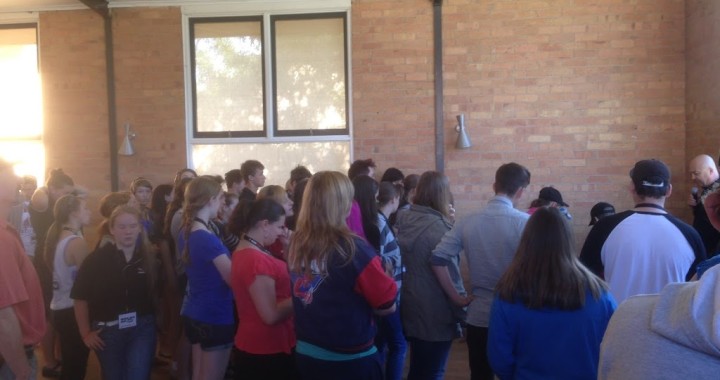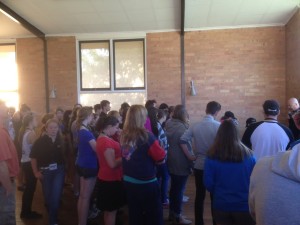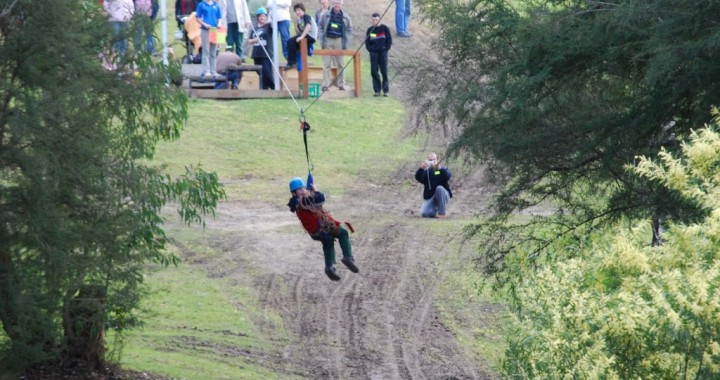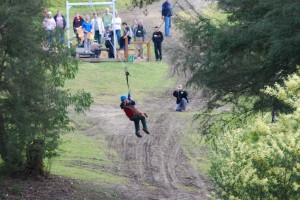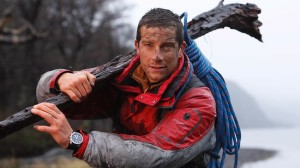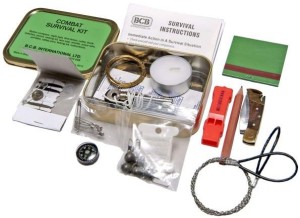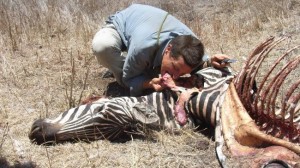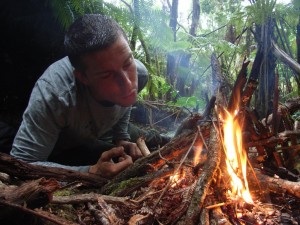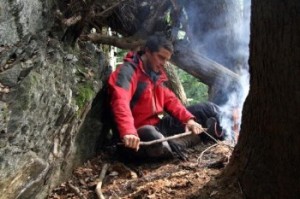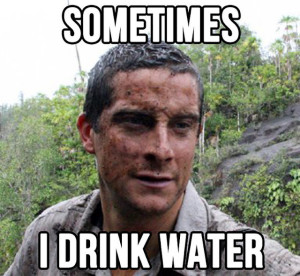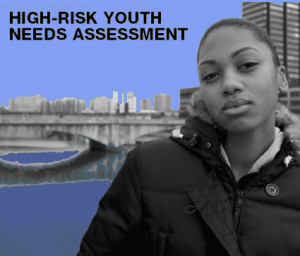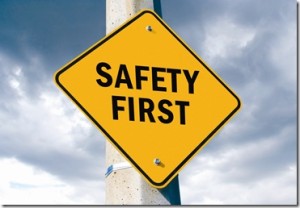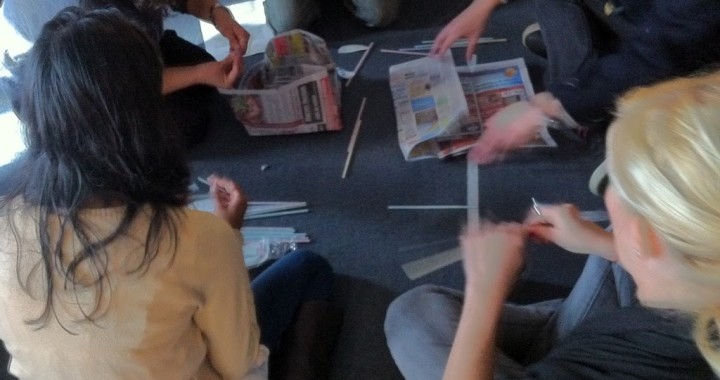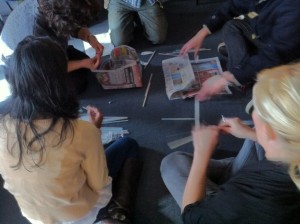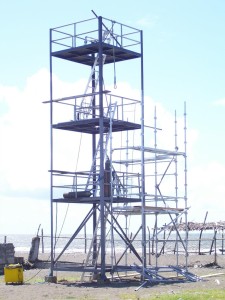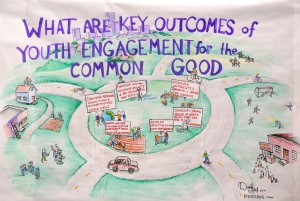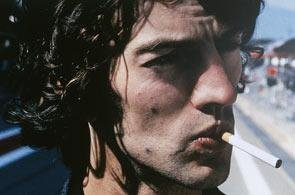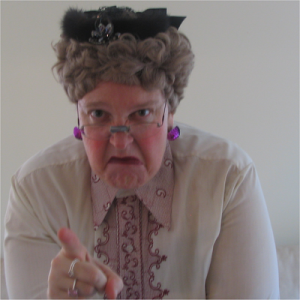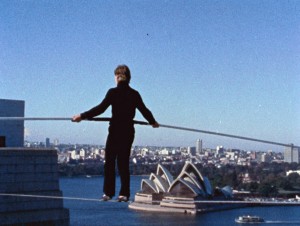Tag Archives: boundaries
Over the years I have been asked hundreds of times about how to set boundaries in youth work. I have spoken to this issue in youth work classes from certificate to degree level. I have spoken on this in supervision session and in seminars. I have also written about it in this blog. Recently I was asked if there was one thing about boundaries that I would pass on to new youth workers what would it be.
I had a mate who had done Sgt. training in the army and one of the roles of a Sgt. is to supervise other troops. In the training my friend was told that when commanding troops he needed to be “firm, fair , friendly but never familiar”. My friend once told me this and it had always stuck.
In youth work we are often trying to lead our young people through the difficult trials of adolescence. Sometimes we need to be firm on the boundaries of our role and their responsibilities. Youth work is all about social justice and as such we want to be as fair as possible when working with young people. Youth work is also a profession developed on friendship building skills. However, sometimes our clients see this friendliness as becoming friends with their youth worker. Which is why we can never become familiar with our young people.
What is youth work without innovation and risk?
As a youth worker in the current neo-liberal regime we are told to play it safe, cover your arse and don’t do anything that could get you in trouble. We are living in a world of risk aversion! We see our young people as always at risk. We are at risk of losing our job. Our organisation is at risk of losing funding. There are risks everywhere and it is our job to minimise these risks.
When I began as a youth worker camps and daytrips were a staple of almost every youth service. A bit of a wrestle at a Friday night youth group wasn’t unheard of. Leaving a male youth worker alone with a group of young people was seen as ok. I remember going on a snow camp where the campsite we were staying at unexpectedly ended up with a mud pit after a torrential downpour. That mud pit ended up as our very own wrestling ring and young people and leaders alike wrestled to their hearts content and washed it off with a dip in the local dam.
In our current risk averse way of doing things we are at-risk of doing nothing to support our young people lest we end up getting in trouble. Its a vicious cycle. Youth work was innovative and ahead of the curve. Today it seems sterile and unimpressive. Aside from a few canny outlaws the whole service sector is becoming bland.
Twenty years from now you will be more disappointed by the things that you didn’t do than by the ones you did do. So throw off the bowlines. Sail away from the safe harbor. Catch the trade winds in your sails. Explore. Dream. Discover.
– Mark Twain
Youth workers are innovators! We improvise, adapt and overcome. We have big ideas and some of them require risk. Calculated risks can bring great rewards. I don’t want any youth worker I work with to get twenty years into their career only to look back and believe they haven’t achieved. I want explorers. I want dreamers and I want discoveries. We are in one of the most exciting times known to the human race and if our work is bland we have no one but ourselves to blame. Make your work exciting!
Do you have a code of ethics???
Working with young people has led me to be in some dicey situations throughout my career. I have worked with young people who use drugs like candy, who have been so abused they have no boundaries and those who have no fear of the future and live like it. I have been in flop houses, under bridges in the middle of the night, in the middle of resi brawls and in situations that would make sailors blush. It is in these times that I wonder what my lecturers would have told me about my situation and a code of ethics.
When the chips are down and we are in one of those situations your old lecturer told you not to get into the only thing you have to rely on is a code of ethics. Whether it is a personal code or a professional code it guides your behaviour in those sticky situations.
So what code do you live by??? Do you have a personal code that you live by??? Put another way, what gets you out of bed in the morning. What do you believe so intrinsically that keeps you on the right path?
What about your organisation? Do they subscribe to a particular code of ethics??? have a look at a few codes and see what they involve… YACVic, AASW and APS are just a few. Does your nation or state have a code of ethics your orginisation could or should follow???
A lot of questions this week. over the next few weeks we will unpack this a bit. In the meantime you can read some of Howard Sercombe’s work on codes of practice.
Survival plan for the stressed youth worker.
Over the years I have become a keen survivalist. Not the crazy people with guns coming out their wazoo that you see on American YouTube videos, More like a less fit Bear Grylls. I can start fire by rubbing sticks together, get water to drink and build a place to live out of the materials around me. This means I am fairly self sufficient in the bush, A great comfort to me and my family when we go away. I still have a bunch of great gear that makes a hike more pleasant but I know that if stuff goes pear shaped I am able to deal with the ensuing issues.
I didn’t learn these skills the first time I tried them. It took practice and patience and the consumption of a lot of knowledge. I practiced and I read. I tried and I watched videos. I trialed theory and spoke to experts. I developed the basics and built on them. And I learnt that the basics of wilderness survival apply to youth work just as well as in the bush.
Food, Fire, Shelter and Water
In wilderness survival you need to be able to source or find Food, Fire, Shelter and Water from any source you can to sustain and protect you. If you do not have these skills then the only thing you can rely on is what you have in you pack and the hope that you will stumble across a McDonald’s. Not exactly the best way to go into the wilderness.
The same goes for the wilderness that is youth work. As a youth worker you can either endure it with knowledge to help you survive or you can go in blind and live in hope.
Food
In Survival Food is often the last thing you need. It is most often the easiest to find. You can survive upwards of thirty days without food however, having it gives you the energy to keep going when the situation is bleak. There are many types of edibles plant and animal which provide sustenance and each of them is found to have its own flavour and texture.
In the wilderness that is youth work our food is usually the “food for thought”. We need to fill our minds with knowledge…food for thought. Like real food we can go a substantial period of time without it, but it does provide us with sustenance for the journey. Read a book, a blog or even a journal. Do a course, attend a seminar or a webinar. If all else fails have a coffee and a chat with a bunch of colleagues about a topic that has some meat.
Fire
Fire provides a place to cook, scares off the beasts and keeps you warm. Fire is almost always in the first two things I do when surviving in the wilderness. You get a sense of extreme joy and peace when your fire finally comes together. It lights up the darkness and takes away your fears.
It is similar to having good mentors and supports. A good mentor is hard to find but when you do they make you work…stoking the fire. You can rest your fears on them. They provide light on dark paths. They marinate your food and warm your heart. They also provide a place to sit with your thoughts were you can reflect.
Shelter
Depending on the situation shelter is either a small net to keep the flies away or a solid structure which takes days to build to suppress the elements. Shelter provides safety from the nasties and a place to regain your energy. Shelter is the only thing between you and the elements which could take your life in seconds.
Good policies and procedures provide the same role. They cover your backside from the elements. They keep small niggling pests at bay and provide clear walls and boundaries for your practice. When storms arise…and they will, policies and procedures keep the crazies outside while you are safe inside.
Water
Is the life giving elixir that you can’t do without. It cools you when your hot. It washes away the grime from the day. It eliminates waste and helps you digest your food. It is not always easy to find but is often the most important. If it is not number one it is usually number two on my list.
Water is similar to your values. You can’t do without them. The make you live. They cool you off when things get hot. When you feel uneasy (read dirty) about a decision your values will wash away the dirt. When you are packing on the responsibilities your values will help you to eliminate wasted effort. Your values make the knowledge you gain palatable and sustaining. Like water they take a bit of work to find and purify, but that makes them all the sweeter when you drink them in. Without your values you can not live for very long.
So there you have it. to survive the wilderness of youth work feed yourself as much knowledge as you can. Warm yourself by the fire of a good mentor. Shelter yourself in policy and procedures. Seek the life giving water that is your value system. With a little knowledge on survival you will stay alive in the wilderness for a long time. Same goes for youth work.
Remember: Prior Preparation Prevents Poor Performance.
Have your survival kit fully stocked and your journey will be that much more comfortable.
If you haven’t yet, sign up for our newsletter to find out all the goings on at Ultimate Youth Worker. (Sign up here)
You can sign up to have our blog posts sent straight to your email by adding your email to the subscribe button on your right, or click here.
You can also leave us a comment below or post a comment on facebook and twitter.
What’s left in your top draw while your on Christmas holidays???
Every year in the lead up to Christmas I get so excited about the time off that I have coming up that everything takes its slow excruciating time to get completed. Projects need to be wrapped up, budgets reconciled and my desk tidied so that everything looks neat. In the final throes of my work week before Christmas I begin to be overwhelmed by the growing mountain of work which hasn’t been able to be completed. It is around this time that I sweep my desktop into my top draw and hope it all works out until next year.
The danger of this way of ending things is that after all that work building relationships our young people end up as a burden to us getting to our holiday. We are in such a rush to get out of the office (and sometimes rightfully so) that any interruption or worry that come from our young people is seen as the end of the world. But what would happen to your young person if while you are on holiday they get thrown out of home, or they are caught up in a family violence, or they become pregnant, or, or, OR! What would happen if those worrying behaviours came to the fore? What if while you are living it up with family or at the beach or in the mountains their life begins to crumble? What did you do in the last few weeks before you went on holidays to provide for them in their time of need… the one Murphy said would happen when you weren’t there.
Throughout the world there are many different ways of handling this situation, from having someone in your team covering your cases to employing an independent agency to take over. Perhaps you work in a church setting and most families will be away as well who is there to help? Another pastor, a deacon or another family? The point is you need to have a plan in place for the young people who rely on you and your counsel. If your organisation has a plan great, follow it and hope all goes well while you are sipping a Mai Tai. If not you need a plan. Here is our plan!!! Its not fool proof, but it has worked well for us in the past.
-
Assess risk
-
Write a list of your young people and use the basic traffic light system to rate how at risk you think they are (GREEN = No Risk, YELLOW = Some Risk, RED = High Risk). If your not sure about a case chat with your colleagues.
-
Impliment a safety plan
-
For those who are assessed as YELLOW give them a couple of names, numbers or online supports they could contact eg. lifeline, kids help line or counselling online (You will need to develop a list of contacts in your area that meet this criteria)
-
If you assess a young person as RED you could do the same as with a YELLOW, however you also need to up the ante. You need to make sure that you have a conversation with the young person stating your concern. Ask them to make a list of five people they could speak with or go to if there was an issue that arose while you were away. Ask to refer them to a specialist organisation such as a mental health, drug and alcohol rehab or family violence service if you believe the risk to warrant ongoing supervision. Take them to their General Practitioner and discuss the options with them. If necesary you may even make a statutory report. Make sure you document all the steps you have made as to cover your backside if anything goes wrong… because even the best laid plans can go awry.
The most important thing is to make sure that what ever is left in your top draw will survive the holiday break. Just as you would not leave a piece of fruit in the top draw you need to be sure the things you leave in the top draw will be ok while you are away. Once you have attended to all the cases needed and ensured that you have done the best you can to make sure nothing and no one is left un-aided you are able to have a good break. Knowing you have set plans in place for your clients helps you switch off and gives you the freedom to enjoy your break without worrying and thinking about what else you should have done. You cannot ensure anyone’s safety fully but you can put in place plans to protect it as best you can.
Now that the draw is clean, left with just the keys you want kept safe, have a great break and we will see you after Christmas … We are having a break as well. No post next tuesday the 25th.
Merry Christmas and enjoy some family time.
If you haven’t yet, sign up for our newsletter to find out all the goings on at Ultimate Youth Worker. (Sign up here)
You can sign up to have our blog posts sent straight to your email by adding your email to the subscribe button on your right, or click here.
You can also leave us a comment below or post a comment on facebook and twitter.
Setting boundaries in youth work:How much do I share about me?
Over the past two weeks I have spoken to a number of youth workers and all of these conversations have turned at one stage or another to the topic of how much they should share about themselves with their young people. Some of the comments that I have heard were, “if I was asked I would tell them that it was a personal question and our work is not about me”, “our sector is to friendly with our clients, we need to distance ourselves”, and “how much do I share about myself when trying to build relationship with my young people”. My conclusion is that if our business is building relationships with young people then youth work educators need to spend more time on how we develop these relationships and on our identity as a profession.
When I started in youth work I too was prone to these questions. With some young people I shared about myself and with others I shut them out. I had no framework for how to deal with this and like many others I just played it by gut feeling. When I began my studies I thought I would be given some clarity on how to answer this question. low and behold I got nothing. Not even a push in the right direction. I was frustrated that there was no clear lines of accountability! If those in the academy could not help then I guessed I would have to work it out myself.
To build a framework I asked colleagues, mentors even my supervisors about what to do. BAD IDEA!!! For every person I spoke to I had at least one new answer. Nothing was adding up. I read books and articles on professional boundaries. Basically they said don’t sleep with your clients or do anything illegal and you will be fine. I was ready to blow up. How was I going to work this out???
In the end I had to come up with a framework of my own. It has formed the basis for one of the Ultimate Youth Worker pillars of practice: deep engagement. Over the years I have copped a lot of flak for my framework. Some say that I am to open with my young people. Others say I am to closed. Whichever way you will lean I have put my stake in the ground and intend to continue with this model until I find something better.
Before I give you the framework let me set some context. This afternoon I was chatting with a youth worker who spoke of the way his organisation teaches youth work students. They base some of their work on the work of a New Zealand based organisation who teach that youth workers need to have both professionalism and community focuses in their work. It is loosely based on the idea of ‘Hapu’ or extended family. A concept that is very much in line with Victoria’s Child Safety Commissioner Bernie Geary who believes that community has a responsibility to support and raise our young people. The balancing act of being a ‘professional’ and yet being a community focused person is difficult… but I believe it is also the key to the best outcomes for our young people.
So I have started to let the cat out of the bag. However, balancing professionalism and a community/extended family mentality is not enough. To many of our young people we fill relational holes in their lives such as those left by parent, siblings and friends. How do we keep the balance when they are striving to become our best buddy??? Two streams of thought always enter my mind and have become the basis for how I balance this conundrum.
-
 In the Army here in Australia all leaders no matter their rank are taught that a good relationship with their team is critical for success. However if the lines get blurred because the relationship becomes more than that of a team and becomes a friendship things can get very messy. to combat this many of the leaders are taught the mantra “be firm, fair, friendly; but never familiar”. this little saying is the first way I balance my answers to those sticky situations. My young people are people not just clients! If I expect them to trust me and give me straight answers then I should show them the same respect. This doesn’t mean give them your home address and take them to your favourite watering hole. But within reason engage them in meaningful conversation as you would anyone else. Let your practice wisdom guide you but do not be afraid to share. I have spoken to sex offenders about my two little girls, told young people which suburb I live in (its a big place and I would be hard to find as I am not listed in the phone book) and even spoke about some of my failings (Yes, even we at the Ultimate Youth Worker have failed). The key to this is emotional intelligence. No more than you are comfortable with and as obscure as necessary for safety. For example, with some young people in residential care who had an affinity of following staff home I would often only say I lived in a particular local government area. With other young people I have no issue saying which housing estate I live in in my particular suburb.
In the Army here in Australia all leaders no matter their rank are taught that a good relationship with their team is critical for success. However if the lines get blurred because the relationship becomes more than that of a team and becomes a friendship things can get very messy. to combat this many of the leaders are taught the mantra “be firm, fair, friendly; but never familiar”. this little saying is the first way I balance my answers to those sticky situations. My young people are people not just clients! If I expect them to trust me and give me straight answers then I should show them the same respect. This doesn’t mean give them your home address and take them to your favourite watering hole. But within reason engage them in meaningful conversation as you would anyone else. Let your practice wisdom guide you but do not be afraid to share. I have spoken to sex offenders about my two little girls, told young people which suburb I live in (its a big place and I would be hard to find as I am not listed in the phone book) and even spoke about some of my failings (Yes, even we at the Ultimate Youth Worker have failed). The key to this is emotional intelligence. No more than you are comfortable with and as obscure as necessary for safety. For example, with some young people in residential care who had an affinity of following staff home I would often only say I lived in a particular local government area. With other young people I have no issue saying which housing estate I live in in my particular suburb. -
The second one comes from my Christian youth work days and a bible passage which always spoke to me in this case. In 1 Corinthians 8 it talks about not letting your actions cause a brother to sin. This may be hard for some of our readers but I have found it to be a great help. In sharing with the above mentioned sex offenders that I had children I was pressed for details of their physical appearance. I had a split second to answer and in that time I believed that due to the nature of their offending and a knowledge of where their rehabilitation was at it would cause more harm than good to answer this question directly. I instead provided a half answer, “They look like me only shorter”. It was enough of a non answer for the young person to not follow up with more questions. When I worked in drug and alcohol rehab I was often confronted with the question “How would you know what its like”? As a manager I often had a suit and tie on which set me apart from the other staff who were jeans and t-shirt kind of people. Often I would just let it go by and not worry. However on one occasion I shared about my background growing up in a broken home in a rough neighbourhood in Melbourne. I shared that as a late teen I had a problem with alcohol and that one of my friends had supported me to reign it in. This led to a stronger relationship with that particular group but also many more questions which I had to fend off or minimise as I believed the answers would not have helped their recovery. One particular young man would ask incessantly how it felt to get drunk. As a person with a history of failed attempts at kicking the bottle I would often retort that it was a “painful experience for all involved”.
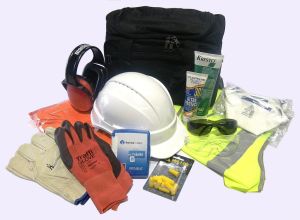 The main thing to think about on top of this is a safety issue. Is what your telling the young person going to cause you, your family or the young person undue harm or inconvenience. If the answer is yes then don’t tell them.
The main thing to think about on top of this is a safety issue. Is what your telling the young person going to cause you, your family or the young person undue harm or inconvenience. If the answer is yes then don’t tell them.This is the bare bones of a framework that has taken me a decade to perfect. Over coming blogs we will discuss some scenario’s and further add meat to the bones.
Youth work boundaries: fuzzy or fixed???
Today I was speaking with some youth worker’s about the state of our profession in Australia and what is holding us back. One of the reasons which was put forward was that some people in the field struggle to implement solid boundaries. As we spoke about our respective youth work studies it became apparent that one area that was severely lacking was ethical boundary setting.
Throughout my career I have seen youth worker’s struggle along the spectrum of boundary setting from the laissez faire to the severely strict. Each part along the spectrum has its positives and its negatives so lets have a look:
laissez faire
The laissez faireyouth worker is everyones friend. They know everything about their young people and wear their heart on their sleeve. These youth worker’s will often work overtime, rarely refer on to other agencies and struggle with the idea of confidentiality. The laissez faire youth worker has unprecedented access to the young people and is seen as the cool worker, or the one who understands them the best. Initially these youth worker’s are praised for going above and beyond but eventually they are seen as just being to close to the young people.
The severely strict
This youth worker is seen as cold and calculating and has fixed unwavering boundaries. The young people they work with have given up so much information while the youth worker has deflected any questions of a personal nature. The youth worker uses “boundaries” as an excuse to not be personable. This type of worker is seen by the young people as the cranky mother type or the angry old man. The youth worker expects conformation to their rules… all of which are aimed at regulating the behaviour of young people. The severely strict youth worker will admonish you when you ask about their family or where they live. Their colleagues see them as distant and to involved in the work rather than the relationships.
The Balanced Youth Worker
The balanced youth worker has boundaries which are set but flexible for individual situations. These workers are clear about what they are not willing to do with a young person and flexible with how much they are willing to do within the remaining purview. These youth workers are seen by their colleagues as providers of individual services to individual young people. With some young people their boundaries are solid and with others they are somewhat looser. These youth workers are able to articulate why they are setting the boundaries where they are and what outcome they expect from setting them there. The balanced youth worker gives of themselves to build relationship but does not share it all. They are not guarded but are wary of not placing their burdens on the young people they work with.
These are just three of the possible points on the spectrum and are not an exhaustive list however it gives you a framework for judging where your practice lies.
What other characteristics can you think of???
